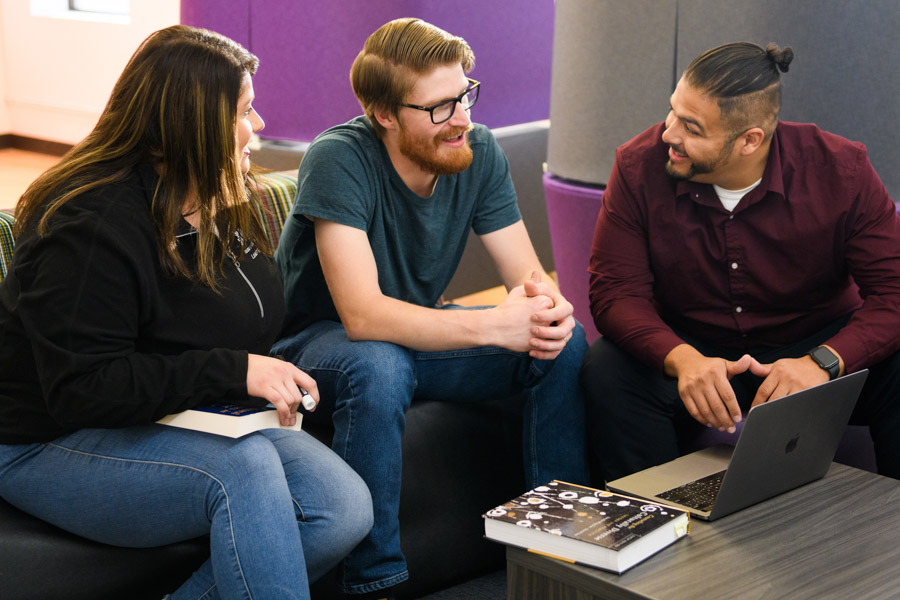
Social Work (MSW)
Master's
PROGRAM SNAPSHOT
Earn your master’s to become a licensed trauma-informed clinical social worker and work in various fields, such as mental health, healthcare, and child welfare.
As mental health is recognized more as a prevalent and serious global issue, younger generations are becoming louder advocates for a holistic view of health and well-being.
According to the World Health Organization, nearly 970 million individuals worldwide experienced an emotional disorder in 2019. Among the most common were anxiety and depression, and only one-third of people with the latter receive mental health care.
People need greater access to qualified professionals who can help them cope with their trauma. Become an independent clinical social worker with the Master of Social Work program at Winona State.
The MSW degree offers students many opportunities to achieve up to 1,000 hours of hands-on field experience from long-established agency partners throughout the nation.
With online learning, flexible labs, and a unique concentration in trauma-informed clinical social work, this program is for students who are ready to take the lead and take their skills to the next level.
This degree is offered through WSU’s Department of Social Work and is accredited by the Council on Social Work Education (CSWE).
In Spring 2023, more than 60 Master of Social Work students graduated—making it the program’s largest graduating cohort yet.
Learn more about how the MSW program has grown over the years and how it continues to make a difference in local communities.
Read More
As a Master of Social Work student, you’ll learn about a holistic approach to help heal child, adult, and family trauma.
You’ll also:
- explore the complexity of mental illness
- develop your critical thinking and supervisory skills
- understand the connection between social injustice and trauma
- know the influence of physical and social environments on human behavior
Your coursework will prepare you for a career in workplaces such as hospitals, medical centers, schools, and social service agencies to family support centers, hospice providers, and small and large psychotherapy practices.
This program does not meet F-1 visa requirements for international students.
However, more than 90% of Winona State’s majors and programs meet F-1 visa criteria.
Learn More about International Services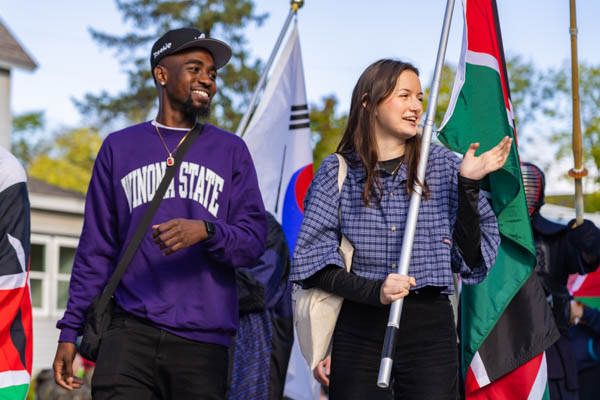
Real-World Training
Your classes are offered in 7-week blocks, allowing you to focus deeply on just a few areas at a time. This also speeds up your graduation date because you can take more classes each semester.
Coursework is delivered entirely online, making the MSW program perfect for anyone who wants to fit their education into their personal and professional lives.
And with all asynchronous classes, you can complete your assignments anywhere.
Be one step closer to becoming a leader in social work by getting the real-world preparation you need along with your degree.
The MSW program curriculum prepares you to pursue the highest level of professional licensure: Licensed Independent Clinical Social Worker (LICSW).
In addition to your classes, you’ll also attend one virtual Professional Development Lab each semester on a weekend.
You’ll network with other MSW students, hear from guest speakers who are experts in the field, and even prepare for the LICSW licensure exam.
These online labs are live and have an asynchronous component.
Beyond the Classroom
You’ll complete an intensive practicum to get essential on-the-job training while still a student.
Your admission status will determine how many hours of practical and clinical experience at a mid-level social work setting you’ll need to graduate.
These practicum experiences will let you get hands-on, faculty-supervised practice with a variety of target populations and in a variety of workplaces throughout the nation.
With more than 140 field partners, our program is known for helping many students earn jobs before they graduate.
Stand out on job applications even further with an impressive volunteer experience.
Bridge the gap in access to health care through Bridges Health, a clinic that provides free services to community members.
Hear from recent alumni about the impact that working at Bridges Health had on their Warrior journeys.
There are 2 ways to be admitted to the Master of Social Work program.
For those who earned a non-Social Work undergraduate degree, you’ll be assigned Regular Standing status.
This pathway to admission includes both generalist and trauma-informed social work curriculum.
You’ll also complete 400 hours for your foundation practicum and an additional 600 hours for your clinical practicum.
If you already have an undergraduate Social Work degree from a CSWE-accredited program, this pathway to admission allows you to earn your MSW in less time.
As an Advanced Standing student, you’ll focus on only trauma-informed social work curriculum.
For your practicum, you’ll complete 600 clinical hours.
According to the Bureau of Labor Statistics, marriage and family therapist positions are expected to grow 14% in the next 10 years.
Rehabilitation counselor jobs also anticipate an 11% growth by 2031.
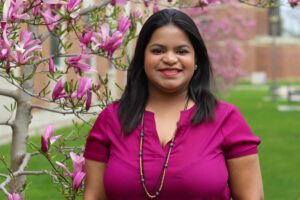
Master's
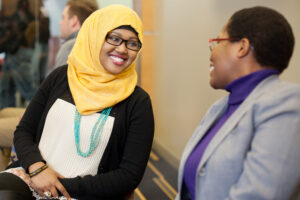
Master's
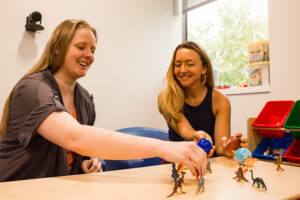
Master's